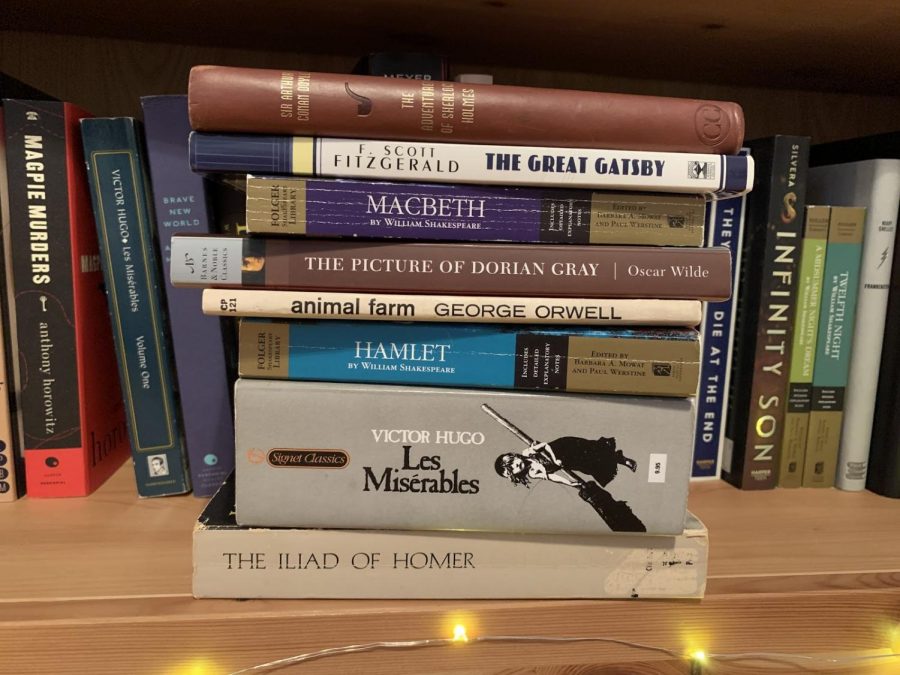Giving Classic Literature a Chance
Top to Bottom: The Adventures of Sherlock Holmes; The Great Gatsby; Macbeth; The Picture of Dorian Gray; Animal Farm; Hamlet; Les Misérables; The Iliad
February 1, 2021
Most people think of classic literature as something they were forced to read and analyze to death in school. They get so used to it being an obligation, they never really consider that some of these books might actually be entertaining.
There has to be a reason that these timeless classics are so timeless in the first place. Yes, a lot of these books are full of symbolism or were written as a social commentary—but the goal of every novel is first and foremost to entertain, no matter how long ago they were written.
Nearly all books considered “classics” deal with heavy topics, but that doesn’t mean they don’t have their lighter moments. Shakespeare, for one, is usually considered extremely posh and pretentious. And yet if you read one of his plays you find that they’re really no more than a bunch of inappropriate jokes and bad puns strung together by made up words and disguised in iambic pentameter like three kids stacked in a trench coat trying to sneak into an R rated movie.
One of the most gratifying things about reading these older books is when you realize you’ve become fluent in the language of these authors and even find yourself laughing at their old-timey jokes without having to read paragraphs of annotations.
There’s also the misconception that all classic literature is written in extreme, almost unnecessary detail made up exclusively of page-long sentences, and certainly, there are some authors that went just a little overboard (*cough* Victor Hugo *cough*), but there are easily just as many who preferred shorter, more direct writing. Animal Farm is one quick and easy read, as are the Sherlock Holmes books, for instance.
While many of these classics take place in settings or situations that we today have never experienced, the underlying themes are still relevant and relatable. Take The Great Gatsby, for example. Not many can understand what it’s like to spend five years illegally selling alcohol in the 1920’s in order to get rich enough to move across the bay from your crush in hopes that she will leave her husband for you—but we can empathize with the idea of wanting to relive the better days of the past instead of moving forward into an uncertain future.
If the only time you read a book is when you know you are going to be tested on it afterwards, of course the experience will not be as enjoyable. Instead of constantly having to worry about “Why did the author choose that word?” “What does this object symbolize?” “Is that a simile or a metaphor?”—being able to just go along with it, take from it what you will, see it in the way you see it, not the way a teacher tells you to, will make the experience so much better and you will get more out of that book than you ever would have in a class. Reading should be about enjoying the ride, not feeling forced to rush through it just to have it done.
You may find that, for whatever reason, you simply don’t enjoy these kinds of books, and that’s okay too. But if you’ve never tried reading one purely for your own entertainment, consider giving one of the classics a chance, it just might surprise you.
Check out our Goodreads list of classic books to get you started.






